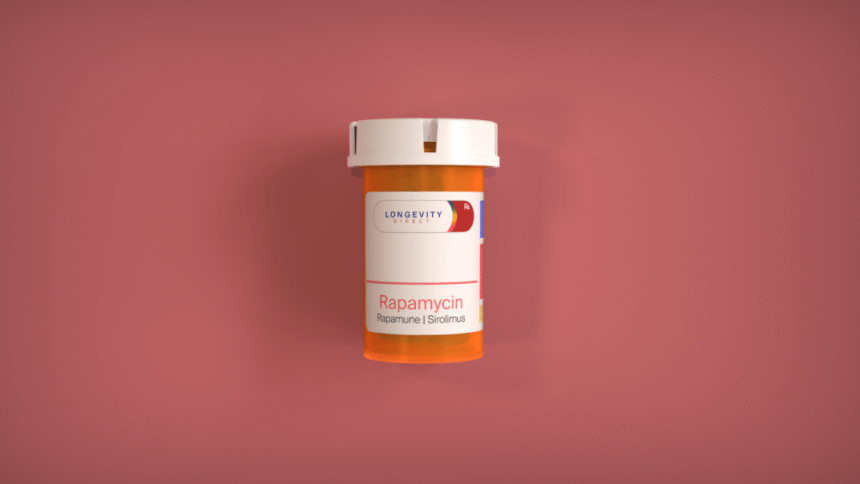In the rapidly evolving world of health and longevity, one name has increasingly dominated scientific discussions: Rapamycin. Originally discovered in the soil of Easter Island, this powerful compound was first used as an immunosuppressant in organ transplants. However, recent studies have revealed that rapamycin holds remarkable potential beyond its traditional use, particularly in the field of anti-aging and longevity.
Today, many researchers and longevity enthusiasts are turning their attention to the rapamycin supplement as a possible tool for extending healthspan—the period of life spent in good health. Although still under scientific review, rapamycin is gaining popularity among those interested in slowing down the biological aging process.
What is Rapamycin?
Rapamycin, also known as sirolimus, is a macrolide compound initially developed for its immunosuppressive properties. It works by inhibiting the mammalian target of rapamycin (mTOR), a central regulator of cell growth, metabolism, and aging. The mTOR pathway plays a crucial role in nutrient sensing and cellular stress responses, and its inhibition has been associated with increased lifespan in various organisms—from yeast to mice.
The mTOR Pathway and Aging
The mTOR pathway is critical for maintaining cellular homeostasis. In young, healthy individuals, mTOR promotes muscle growth and cell proliferation. However, excessive activation of this pathway in later life may contribute to age-related diseases such as cancer, type 2 diabetes, and neurodegeneration.
By selectively inhibiting mTOR, rapamycin is believed to promote autophagy—the body’s way of cleaning out damaged cells and regenerating newer, healthier ones. This process is essential for reducing cellular damage, a key driver of aging.
Benefits of Rapamycin Supplementation
While research is still ongoing, early findings have shown promising benefits of rapamycin supplementation in various areas:
1. Lifespan Extension
Multiple studies in animal models have demonstrated that rapamycin can extend lifespan by up to 60%. These studies show that even short-term treatment in middle-aged mice can lead to significant longevity gains.
2. Reduced Risk of Age-Related Diseases
Rapamycin may help reduce the risk of diseases commonly associated with aging, including:
- Cardiovascular Disease: By improving endothelial function and reducing inflammation, rapamycin may support heart health.
- Cancer: mTOR signaling is often dysregulated in cancer. Rapamycin’s ability to suppress this pathway offers potential for cancer prevention or therapy.
- Cognitive Decline: Preliminary studies suggest rapamycin may reduce the risk of neurodegenerative diseases like Alzheimer’s by protecting neurons and enhancing brain plasticity.
3. Immune System Modulation
Although primarily an immunosuppressant, rapamycin has shown immune-enhancing effects in low doses. It may rejuvenate the immune system in elderly individuals, making them more resilient to infections and improving vaccine responses.
How is Rapamycin Used in Longevity Protocols?
Rapamycin is not approved by the FDA specifically for anti-aging use, so most supplementation occurs off-label. Longevity physicians and biohackers who use rapamycin for aging typically administer it in intermittent low doses (e.g., once weekly), minimizing immunosuppression while still reaping the anti-aging benefits.
This careful dosing schedule helps avoid the adverse effects seen in organ transplant patients who take the drug daily. As with any potent compound, the advice and supervision of a medical professional are essential when considering rapamycin supplementation.
Safety and Side Effects
Rapamycin is generally considered safe when used correctly, but like all medications, it comes with potential side effects. These may include:
- Mouth sores
- Increased cholesterol or triglyceride levels
- Impaired wound healing
- Gastrointestinal discomfort
Importantly, most of these side effects are dose-dependent and more common in patients taking high daily doses. When used in longevity protocols, the lower and intermittent dosing significantly reduces the likelihood of adverse reactions.
Current Research and Human Trials
While the bulk of rapamycin research has been conducted in animals, human trials are underway to explore its potential in age-related health outcomes. For example, the PEARL trial is a notable ongoing study evaluating the safety and effectiveness of rapamycin in healthy older adults.
Other observational studies and clinical reports from longevity clinics have also provided anecdotal support for rapamycin’s benefits. As scientific understanding grows, we can expect clearer guidelines and potential regulatory approval for rapamycin as a longevity agent.
Rapamycin vs. Other Longevity Compounds
Rapamycin is often compared with other popular longevity compounds, such as metformin, NAD+ boosters, and senolytics. Each of these has different mechanisms of action:
- Metformin primarily works through improving insulin sensitivity and reducing oxidative stress.
- NAD+ boosters aim to enhance mitochondrial function.
- Senolytics target and remove senescent cells from the body.
Among these, rapamycin stands out for its broad effects on multiple aging pathways, particularly the powerful mTOR signaling system.
Accessibility and Cost Considerations
Unlike over-the-counter supplements, rapamycin is a prescription drug. Its accessibility varies based on regional regulations and physician willingness to prescribe it off-label for anti-aging purposes. Cost is also a factor—while some generic versions are affordable, others can be costly, particularly if sourced through specialized longevity clinics.
If you’re exploring other longevity treatments, it’s important to evaluate affordability. For example, Metformin cost is generally lower than rapamycin and is widely accessible. This makes it an appealing alternative or complementary therapy for those just beginning their longevity journey.
Final Thoughts
The interest in rapamycin as an anti-aging supplement reflects a broader shift toward proactive health management. While it’s not a magic bullet, rapamycin represents a scientifically promising intervention with the potential to significantly impact human healthspan.
As research continues, we’re likely to see more robust data and guidelines emerge. For those considering rapamycin supplementation, a thoughtful, informed approach—ideally under the supervision of a healthcare professional—is essential.
Meanwhile, comparing longevity tools such as rapamycin with more accessible options like metformin can help individuals make better-informed choices tailored to their health needs and financial considerations.







